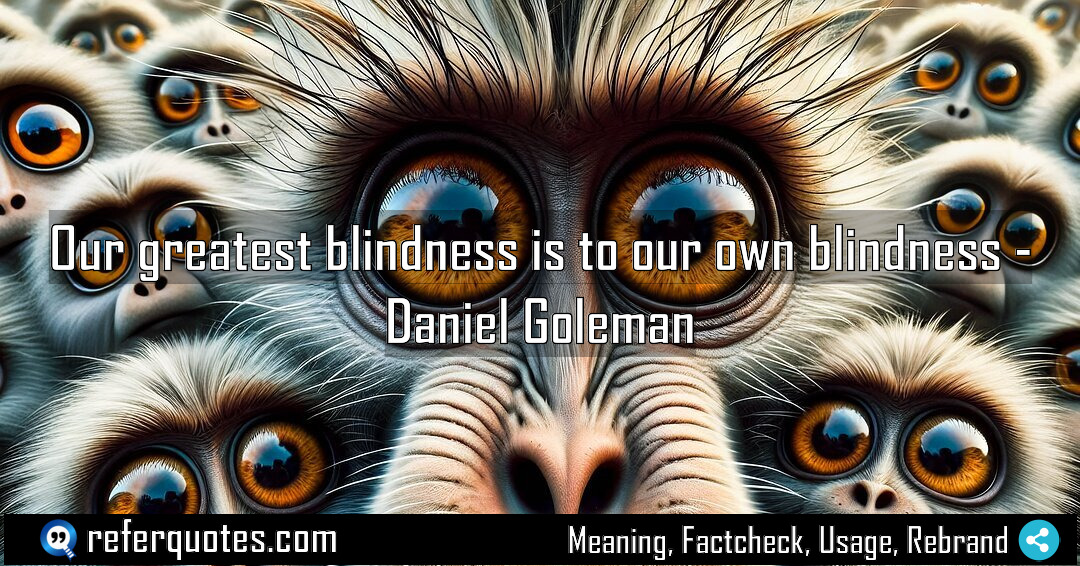You know, “Our greatest blindness is to our own blindness” is such a powerful truth. It hits you because we’re all so busy looking outward, we forget the biggest blind spot is staring back at us in the mirror. It’s the one thing we’re truly incapable of seeing on our own.
Share Image Quote:Table of Contents
Meaning
The core message is brutally simple: the most dangerous thing we don’t know is what we don’t know about ourselves.
Explanation
Let me break it down for you. This isn’t about being stupid or unobservant. It’s about a fundamental flaw in our own operating system. Our brain, in an effort to protect our ego and maintain a coherent sense of self, actively hides our shortcomings from us. We construct these intricate stories—these “vital lies”—to paper over the cracks in our self-awareness. So the problem isn’t just that we’re blind in a few spots. The real problem, the meta-problem, is that we’re completely unaware of the scope of our own ignorance. We walk around with this unshakable confidence that we see things clearly, and that confidence is the very engine of our self-deception.
Quote Summary
| Context | Attributes |
|---|---|
| Original Language | English (3668) |
| Category | Personal Development (697) |
| Topics | awareness (126), truth (77) |
| Literary Style | aphoristic (181) |
| Emotion / Mood | reflective (382) |
| Overall Quote Score | 89 (88) |
Origin & Factcheck
This gem comes directly from Daniel Goleman’s 1985 book, Vital Lies, Simple Truths: The Psychology of Self-Deception. You might know Goleman better for his later work on Emotional Intelligence, but this is where he really laid the groundwork. It’s sometimes misattributed to other psychological thinkers, but this is pure Goleman, exploring how the mind conspires against itself.
Attribution Summary
| Context | Attributes |
|---|---|
| Author | Daniel Goleman (125) |
| Source Type | Book (4032) |
| Source/Book Name | Vital Lies, Simple Truths: The Psychology of Self-Deception (61) |
| Origin Timeperiod | Modern (530) |
| Original Language | English (3668) |
| Authenticity | Verified (4032) |
Author Bio
Daniel Goleman is a psychologist and bestselling author whose journalism at The New York Times brought brain and behavior science to a wide audience. He earned a BA from Amherst and a PhD in psychology from Harvard, and studied in India on a Harvard fellowship. Goleman’s research and writing helped mainstream emotional intelligence, leadership competencies, attention, and contemplative science. He co-founded CASEL and a leading research consortium on EI at work. The Daniel Goleman book list includes Emotional Intelligence, Working with Emotional Intelligence, Primal Leadership, Social Intelligence, Focus, and Altered Traits.
| Official Website
Where is this quotation located?
| Quotation | Our greatest blindness is to our own blindness |
| Book Details | Publication Year: 1985; ISBN: 9780743240156; Last edition: 1996 Harper Perennial; Number of pages: 288. |
| Where is it? | Approximate page from 1996 edition, Chapter 4: Social Blindness |
